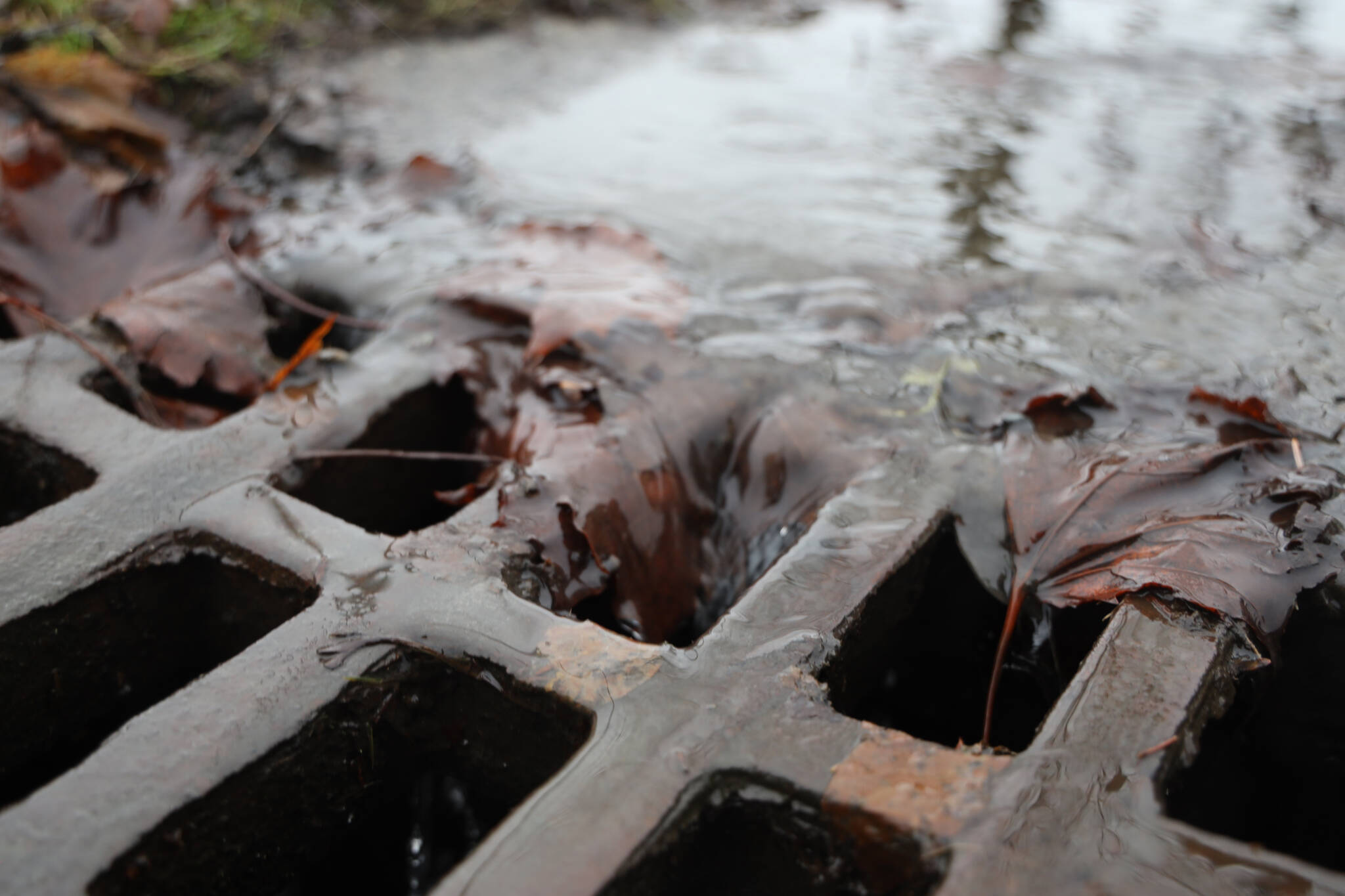Juneau’s single-year high of rainfall has reigned for the past three decades, but this year is set to make a splash and displace 1991 for the top spot.
“At this point, it’s looking pretty likely,” Rick Fritsch, the lead meteorologist at the National Weather Service Juneau.
As of Sunday, Juneau had accumulated 82.48 inches of rain and/or melted snow, which means this year’s total would need just a touch more than 2.5 inches of rainfall to beat the current record — and there are still 41 more days to go before the end of the year.
Currently, this year’s rainfall total sits in third place, closely behind 2015’s second-place total, but Fritsch said even if Juneau’s rainfall for the remainder of the year came significantly below average, the record will still break.
Juneau is getting closer to the all time annual record accumulated rainfall total. With 43 days to go, Juneau airport needs only 3.11 inches more to break the 1991 record. #akwx .@KTOOpubmedia .@800KINY .@JuneauEmpire pic.twitter.com/XiAM6xzdtp
— NWS Juneau (@NWSJuneau) November 19, 2022
Fritsch said for the rest of the year, there is no strong climate signal pointing to above- or below-normal precipitation, but noted Juneau’s average rainfall for December is around 6.5 inches, and it only needs to rain around 2.5 inches from now until the end of the year to break the record.
“Even if we just get normal precipitation, we will beat the record with inches to spare,” he said.
To put it in perspective, if Juneau sees an average December for rainfall and snowmelt it is conceivable Juneau’s rainfall total will eclipse the height of legendarily large human being, Andre the Giant, who was frequently listed at 7-foot-4, or 88 inches tall.
Juneau got out to an early jump on what will near-certainly be a record-setting amount of rain as January and February had more than twice as much rain than on average in Juneau.
“A lot of it has to do with the fact that January and February were so stinkin’ wet,” he said.
As for when Juneau might break the record, Fritsch said it’s hard to say though he’s “fairly confident” it will happen.
“We could get one of these ‘atmospheric rivers’ come blasting through, and we could do it in one day — it could be at any point in time from now until the end of the year,” he said. “Or, it could be an accumulation of the average rainfall.”
As for what caused this year to see such heavy rainfall in Juneau, he pointed to climate change as a major factor both for the increase in the capital city and across the globe.
Of the top 10 rainfall records in Juneau, more than half have been since the turn of the century, said Fritsch, and since the mid-1970s there has been an upward trend in precipitation in Juneau according to data,
“The trend is up,” he said.
Fritsch explained that as the oceans continue to warm due to climate change, more water will begin to evaporate into the atmosphere, which in turn will create vapor, clouds and eventually rain.
“The warming of the planet and climate change is largely responsible for the increase in annual rainfall in most places, and we are one of those places,” he said.
Fritsch noted the Intergovernmental Panel on Climate Change predicted there would be an increase in extreme weather events as climate change increases, and he said that prediction is beginning to become a more frequent reality in Juneau as extreme weather events like atmospheric rivers continue to occur.
“It seems like we’re seeing more extreme rain events as time goes by,” he said. “Climate change is really the core of the change.”
• Contact reporter Clarise Larson at clarise.larson@juneauempire.com or (651)-528-1807. Follow her on Twitter at @clariselarson.

